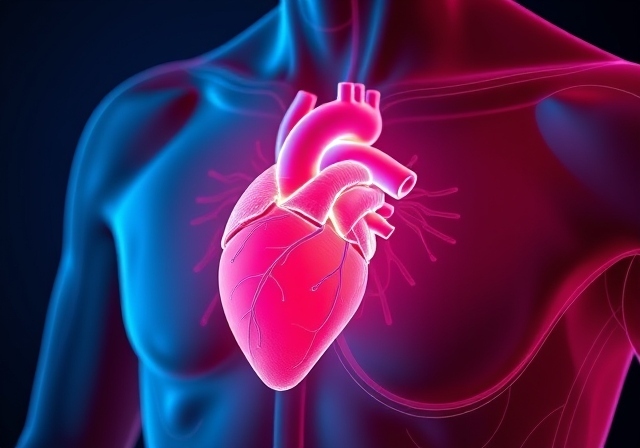Heart attacks are often associated with dramatic symptoms like severe chest pain, but not all heart attacks are this obvious. A silent heart attack can strike without the typical warning signs, making it a significant threat to your health. Understanding the symptoms of heart problem and learning to recognize mild heart attack symptoms is crucial for timely treatment and prevention.
What Is a Silent Heart Attack?
A silent heart attack occurs when the heart doesn’t receive enough blood flow and oxygen, but the symptoms are mild or completely absent. Despite the lack of noticeable signs, it can cause significant damage to the heart, similar to a traditional heart attack. Silent heart attacks are often discovered weeks or months later during routine checkups or tests.
Causes of Silent Heart Attacks
Most silent heart attacks are caused by signs of minor heart blockage in the coronary arteries. These blockages can be due to:
- Cholesterol buildup (plaque).
- Blood clots.
- Spasms or injuries in the coronary arteries.
How Common Are They?
Research shows that nearly 60% of heart attacks occur without noticeable symptoms, with a higher risk among individuals with diabetes or those assigned female at birth (AFAB).
Recognizing the Symptoms of a Silent Heart Attack
Unlike traditional heart attacks, silent heart attack symptoms are subtle and often mistaken for other conditions. These may include:
- Persistent fatigue.
- You might feel a slight discomfort in your jaw, arms, or upper back.
- Indigestion or nausea.
- A feeling similar to having the flu.
On the other hand, early symptoms of heart attack in general may include:
- Shortness of breath.
- Lightheadedness or dizziness.
- Chest discomfort lasting more than a few minutes.
- Cold sweats.
Silent heart attacks are dangerous because the lack of clear symptoms often delays treatment, leading to further complications.
Risk Factors for Silent Heart Attacks
Certain health and lifestyle factors increase the likelihood of experiencing a silent heart attack, including:
- High cholesterol and high blood pressure.
- Poor diet high in unhealthy fats and salt.
- Lack of regular physical activity.
- Tobacco use.
- Stress and anxiety.
- Chronic conditions like diabetes or kidney disease.
Additionally, factors like age, family history of heart disease, and postmenopausal status (AFAB) can also elevate the risk.
Diagnosing a Silent Heart Attack
Since silent heart attacks often go unnoticed, they are usually detected through medical tests such as:
- Electrocardiogram (ECG): Identifies irregular heart rhythms.
- Cardiac imaging: Includes CT scans, MRIs, and echocardiograms to assess heart health.
Treatment for Silent Heart Attacks
Treating a silent heart attack is as urgent as treating a typical one. Immediate steps include:
- Administering aspirin to prevent further clotting.
- Monitoring heart activity and oxygen levels.
- Prescribing medications to manage blood pressure, cholesterol, and prevent blood clots.
Surgical Interventions
In severe cases, procedures like angioplasty (inserting a stent to open blocked arteries) or coronary artery bypass grafting (CABG) may be required.
Read More: Can Stress Cause Heart Attack? Understanding the Link Between Stress and Heart Health
Preventing Silent Heart Attacks
Prevention is always better than cure. Simple lifestyle changes can significantly lower your risk of a heart attack. Here’s how:
- Stay active: Make exercise a regular part of your routine by staying active several days a week.
- Eat heart-healthy foods: Incorporate fruits, vegetables, and whole grains into your diet while limiting red meat and processed foods.
- Quit smoking: Avoid all forms of tobacco products.
If you have existing health conditions like diabetes or high blood pressure, regular checkups and following your doctor’s advice can help prevent complications.
Living with a Silent Heart Attack
Recovery from a silent heart attack involves both medical treatment and lifestyle adjustments. You may need to take medications like:
- Beta-blockers.
- Cholesterol-lowering drugs.
- Antiplatelet medications to prevent clots.
Joining a cardiac rehab program can be beneficial for regaining strength and learning heart-healthy habits.
When to Seek Help
If you think you’re having a heart attack, even if the symptoms seem mild, don’t wait—call emergency services right away. Acting quickly can save your life and help prevent lasting damage.
Key Questions for Your Doctor
- How effective are the treatments for silent heart attacks?
- What lifestyle changes will have the most impact on my heart health?
Silent heart attacks may not announce themselves with dramatic symptoms, but they’re just as life-threatening. Understanding the symptoms of heart problem, recognizing the early symptoms of heart attack, and seeking timely cardiology treatment can make all the difference.
Stay vigilant, prioritize your health, and don’t ignore subtle changes in how you feel. Your heart health matters!
Read More: Understanding Heart Diseases: Types, Symptoms, and Treatment Options




